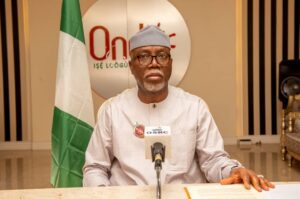Infrastructure decay: Due process key to access financing by TETFUND — Provost
By Moses Adeniyi
Provost, Federal College of Education (Technical) Akoka in Lagos State Dr Abdulwahab Ademola Azeez has advised management of tertiary institutions in the country to follow due process so as to enable them access funding support of Tertiary Education Trust Fund (TETFUND) for various infrastructural projects.
This is a follow up to recent commendation of TETFUND by the National Assembly on procedures for financing projects and manpower training ofvtertiary institutions in the country.
TETFund provided about N1.6 trillion for universities, polytechnics and Colleges of Education in Nigeria between 2011 and 2021 to bridge the gap in the infrastructural development and capacity building.
Dr Ademola explaining how he secured TETFUND funding support, he disclosed that he made proposals, got consultants, and effected the bidding, among other due processes, which led to the commencement of the projects, many of which have since been completed.
Ademola who made the disclosure to Nigerian NewsDirect in an exclusive interview, mentioned that having gotten details of the unassessed projects, he approached TETFUND’s management who upon tracking the file records, confirmed the backlogs.
“What I did when I came on board in May 2019 was to check the record and I discovered there are projects my college was unable to assess from TETFUND
“So, I approach the TETFUND’s leadership and met some of the directors in charge of project and they were able to go to the file and I was able to assess the method of allocation for the previous ones.
“As at then, any institution was allowed to merge about three projects. That was what I did – to check all the projects that have not been assessed by previous administrations. I got consultants, submitted a proposal and the result of the proposal is what you are seeing in the college today. So, we were able to merge normal and special interventions,” he said.
Laying emphasis that due processes were followed, he said: “You have to follow the procedures for bidding; the law allows us to advertise. The projects are public, so we advertised according to the stipulations of the Procurement Act 2007.
“We advertised in national newspapers, which must run at least for six weeks and any successful bidder would be given the contract; not necessarily the lowest bidder. At times, the lowest bidder may not have the technical ability and the finance to execute the project. In a nutshell, there were procedures we needed to follow and that was exactly what we did.”
According to the Provost, the process of redeeming the projects for execution commenced in 2019 when upon arrival into office following his appointment, he discovered a number of projects which, until his assumption of office, were not executed.
Ademola commended the impacts that TETFUND have had on tertiary education in the Country, mentioning that beyond infrastructure development, the fund has largely contributed to capacity development of academic and non academic stakeholders in higher institutions across the Country.
“From the projects that TETFUND have been financing, I can convienently say TETFUND has been supporting qualitative education. It’s now left for the administrators and management of the institutions to focus on areas that can benefit Nigerians.
“Because apart from the infrastructural development, what we need to do more is to invest on human capital development. When you train your lecturers and administrative staff, they will be able to meet up with challenges of running modern day institution, so as to make our institutions become competitive
“So, TETFUND has also been assisting by supporting lecturers and staff to go for workshops and training outside the Country in order to get the best training and also come back to Nigeria to also retrain colleagues and students as well,” he said.
He further mentioned that the Academic Staff Union of Universities (ASUU) has played a huge role in agitations that have led to increased funding of tertiary institutions in the Country.
He said, “Nigerian academia should be grateful to the Academic Staff Union of Universities (ASUU) for being the agent that has brought progress to the Nigerian educational system, especially the tertiary system. If not for the struggle, the Federal Government would not have accede to ASUU’s agitation.
“Initially, the tax deduction on education was one percent but later increased to two percent. That two per cent deduction tax, paid by private companies and organisations has done a lot for Nigerian tertiary education, such that no institution in Nigeria can complain of not having access to TETFUND project or interventions; except if such an Institution is not serious because the guidelines are very clear on the rate of allocation given every year.”




